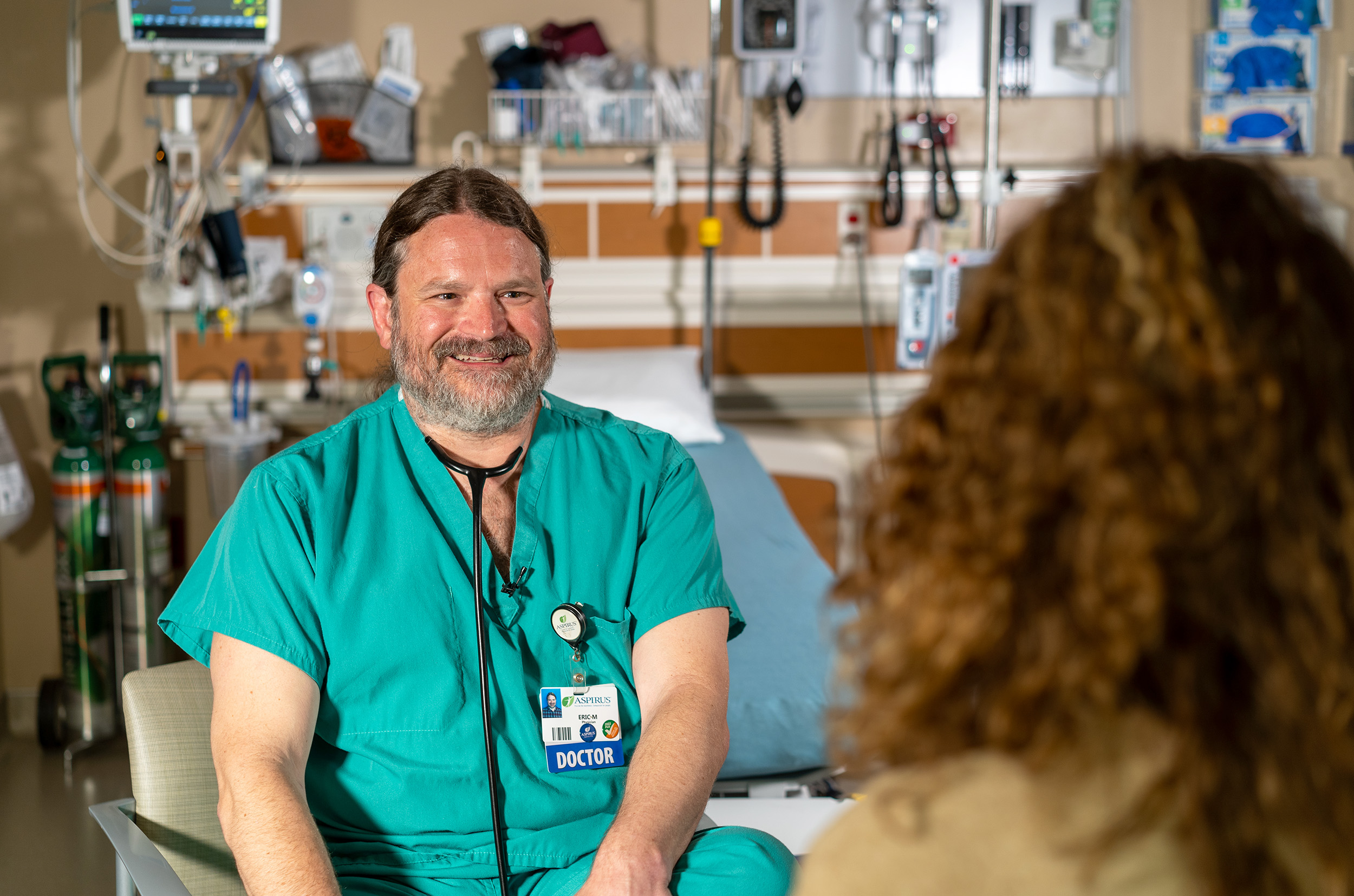Fireworks Safety Month: Ensuring a Safe Celebration
Tips to celebrate safely this Fourth of July
6/28/2024

Dr. Eric Maki, Aspirus Emergency Medicine Physician
Fireworks are
synonymous with Independence Day celebrations, but they also pose significant
risks if not handled properly. Every year in the U.S., fireworks send thousands
of children to the emergency room (ER), according to Safe Kids Worldwide. To
prevent a fun celebration from turning into a trip to the ER, experts advise
taking extra precautions.
Typical injuries and
burns from fireworks tend to affect the extremities, such as hands, fingers, or
legs, as well as the head and eyes. Sometimes these injuries are serious enough
to require ER treatment, and some can even be fatal. Those hurt or killed are
often children or bystanders.
"This time of
year, we see several types of injuries related to fireworks. The most common
are burns,” says Eric Maki, MD,
Aspirus Emergency Medicine Physician. He notes sparklers as the main
culprit: “They’re fun, and I know everybody enjoys them, especially kids, but
they burn at extremely high temperatures. Even when the firework is finished,
the residual sparkler stick remains hot and can still cause burns.”
The
2023 Fireworks Annual Report from the U.S. Consumer Product Safety
Commission (CPSC) reports there were an estimated 9,700 injuries involving
fireworks. Teenagers aged 15 to 19 had the highest estimated rate of emergency
department-treated, fireworks-related injuries, with children aged five to nine
having the second-highest rate.
"The most
important safety strategies involve making sure that children are supervised
appropriately – that an adult is always there actually igniting the fireworks
and seeing that all appropriate safety precautions are used,” says Dr. Maki.
Aspirus Health and
the CPSC urge everyone to celebrate safely this holiday by following these
safety tips:
- Never allow young
children to play with or ignite fireworks.
- Have a designated
adult supervise fireworks activities.
- Keep a bucket of
water or a garden hose handy in case of fire or other mishap.
- Light fireworks one
at a time, then move back quickly.
- Never try to relight
or handle malfunctioning fireworks. Soak them with water and throw them away.
- Never place any part
of your body directly over a fireworks device when lighting the fuse. Move to a
safe distance immediately after lighting fireworks.
- Never point or throw
fireworks (including sparklers) at anyone.
- After fireworks
complete their burning, to prevent a trash fire, douse the spent device with
plenty of water from a bucket or hose before discarding the device.
- Never use fireworks
while impaired by alcohol or drugs.
- Keep spectators at a
safe distance from the fireworks.
By following these
safety tips, families can enjoy the holiday while minimizing the risk of
fireworks-related injuries. Stay safe and make this Independence Day memorable
for all the right reasons.
Find more fireworks
safety tips at cpsc.gov/fireworks.

Back to all Posts